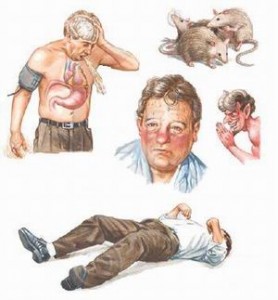Treatment
The goals of treatment are to reduce the immediate withdrawal symptoms, prevent complications, and begin long-term therapy to promote abstinence (no drinking at all).
INPATIENT DETOXIFICATION
People with moderate-to-severe symptoms of alcohol withdrawal may need inpatient treatment at a hospital or other facility that treats alcohol withdrawal. Others who may need inpatient treatment include those who:
- Have a mental health disorder, such as schizophrenia or bipolar disorder
- Have failed outpatient treatment for alcoholism or alcohol withdrawal
- Have serious medical problems
- May be harmful to themselves or others
Treatment at an inpatient center will include medical monitoring and treatment of alcohol symptoms.
- Monitoring of blood pressure, body temperature, heart rate, and blood levels of different chemicals in the body will take place. The person will be watched closely for hallucinations and other signs of delirium tremens.
- Many patients are given fluids or medications through a vein (IV).
- Treatment may involve sedating the person until withdrawal is complete. A class of medications known as benzodiazepines is often used for this purpose.
OUTPATIENT DETOXIFICATION
People with mild-to-moderate alcohol withdrawal symptoms can often be treated in an outpatient setting. They should have a person who commits to staying with them throughout the process and is able to monitor them closely. Daily visits to a health care provider are needed until the patient is stable.
Blood tests are drawn periodically. Patients are given sedative drugs to help them with withdrawal symptoms.
As withdrawal symptoms become manageable:
- Patient and family counseling is begun to address the long-term issue of the patient’s alcoholism. See: Alcoholism
- Testing and treatment for other medical problems associated with the use of alcohol are performed.
- Mental health disorders that are present should be treated.
It is important that the patient goes to a living situation that helps support them in staying sober. Some areas have housing that provide a supportive environment for those trying to stay sober.
Permanent and life-long abstinence from alcohol is the best treatment for those who have gone through withdrawal.
Support Groups
For additional resources, see alcoholism support group.
Prognosis (Expectations)
Alcohol withdrawal may range from a mild and uncomfortable disorder to a serious, life-threatening condition. Symptoms usually begin within 5 – 10 hours of the last drink. The symptoms peak in 48 – 72 hours and may persist for weeks.
Symptoms such as sleep changes, rapid changes in mood, and fatigue may last for months. People who continue to drink excessively may develop many medical conditions such as liver and heart disease.
Most people who go through alcohol withdrawal make a full recovery; however, a small percentage of alcohol withdrawal cases end in death, especially if delirium tremens is present. For those who recover from alcohol withdrawal, the long-term outlook depends on how much organ damage has occurred and whether the person can stop drinking completely.
Calling Your Health Care Provider
Alcohol withdrawal is a serious condition that may rapidly become life threatening.
Call your health care provider or go the emergency room if you think you might be in alcohol withdrawal, especially if you were using alcohol often and recently stopped. Call for an appointment with your health care provider if symptoms persist after treatment.
Go to the emergency room or call the local emergency number (such as 911) if seizures, fever, severe confusion, hallucinations, or irregular heartbeats occur.
Alcohol withdrawal: Overview, Causes
Alcohol withdrawal: Symptoms & Signs, Diagnoisis & Tests
Alcohol withdrawal: Treatment
Reviewed By : David B. Merrill, MD, Assistant Clinical Professor of Psychiatry, Department of Psychiatry, Columbia University Medical Center, New York, NY. Also reviewed by David Zieve, MD, MHA, Medical Director, A.D.A.M., Inc.

